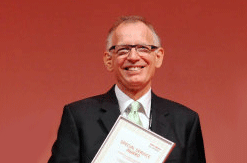In light of the sad news that Philip Gould has lost his fight against cancer, YouGov President Peter Kellner looks back on the political adviser's 'unpitying candour', insight, rigour and skill
Much has been said about Philip’s courage in the face of the cancer that has claimed his life, and also about his contribution to the Labour Party’s renaissance in the 1990s. To me, the real point is that the two were linked. One of his most vital qualities, in his career as in his life, was his uncompromising honesty.
As those who read his remarkable articles in The Times earlier this year, or his more recent interview with Andrew Marr on BBC television, Gould confronted his own illness with unpitying candour. What is perhaps less well known is that he was just as candid, and just as brutal, about the party he loved. And that was part of what made him so valuable to successive leaders.
During the 1992 General Election campaign we spoke two or three times a week. He was advising Neil Kinnock, and I was reporting the polls for BBC Newsnight and the Independent. He was fearful throughout the campaign that voters still did not trust Labour and that Kinnock would lose. He did not believe the opinion polls showing Labour ahead; I did believe them and told viewers and readers day after day that John Major was heading for defeat. Philip, of course, was right and I was wrong.
How could Philip tell that the polls were mistaken? It was partly because he listened to ordinary voters in focus groups: his experience and his antennae told him that swing voters still had their reservations about Kinnock. In addition, he read the polls with special care – not so much the headline voting figures but the other questions, especially about the economy, which revealed an undercurrent of fears about changing the government of a country still stuck in recession.
However those skills would have been of little use had he adopted the posture of most advisers in every era, and moderated his advice to tell Kinnock – and, subsequently, Tony Blair – what they wanted to hear. That was not Philip’s way. Even at the height of New Labour’s popularity, when it won two landslide election victories, he kept telling Blair when he was drifting away from Labour voters. Blair was sensible, and self-confident, enough, to heed Philip’s advice. (Sadly, the same was not true of Gordon Brown. As Deborah Mattinson, his pollster, details in her book, Talking to a Brick Wall, Brown marginalised her when she told him how unpopular he was.)
The sad truth is that Philip’s combination of skill, rigour and candour is far too rare. The more common condition of our political discourse is myopia, distortion and deception (often self-deception). This is one reason why politics and politicians are held in such low regard. Voters have an unerring ability to tell when ministers and their shadows are spinning a line and evading the question.
Sometimes Philip used to be bracketed with spin-doctors, and criticised as a master of the darker arts of election campaigning. The truth is that he was the exact opposite. If today’s politicians, journalists and, er, pollsters wish to pay his life proper tribute, it would be to speak as truthfully and candidly as he always did.









